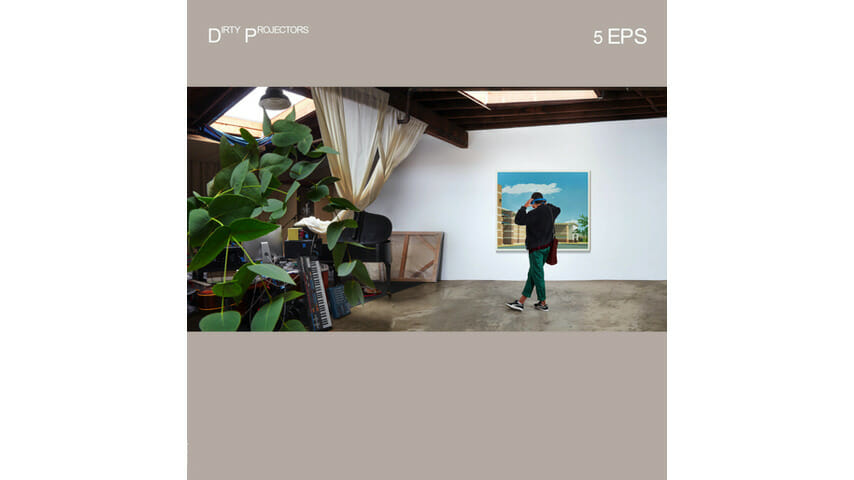Dirty Projectors Rotate Roles on the Slightly Spotty 5EPs
Indie vet Dave Longstreth’s new backing band has strengths aplenty, but sometimes, he gets in their way

In the years leading up to September 2016, it was easy to wonder where Dirty Projectors had gone. Dave Longstreth’s ragtag, Ivy League squad of technically dazzling instrumentalists and hocketing female vocalists achieved one of indie rock’s all-time great one-two punches with 2009’s unyieldingly bright, spasmodic Bitte Orca and 2012’s often-woodsier Swing Lo Magellan. Why recede into quietude after climbing such great heights?
It’s easy to regret that question now. Dirty Projectors have felt somewhat inescapable since Longstreth reformed the band as a brooding solo project for 2017’s Dirty Projectors, followed that effort with 2018’s Bitte-lite LP Lamp Lit Prose and released the 2019 live album Sing the Melody. At some point in 2018, Longstreth expanded Dirty Projectors back into a band with, like its prior incarnation, three virtuoso female instrumentalist-vocalists, and that’s been the crux of the project’s 2020 presence.
Think of Longstreth’s 2020 as Dirty Projectors but decentralized. Even amidst this year’s ceaseless media roar of concerning election and pandemic news, Dirty Projectors gradually released four EPs—one with each band member on lead vocals and Longstreth co-writing each song—and are now releasing a fifth with a “dynamic, full-band sound.” Collected as an anthology of these releases, 5EPs is the first time this seemingly interminable project has felt completely approachable, rather than yet another informational overload in this swirling year. And though it highlights each performer’s unique strengths, it sometimes obscures the new members’ talents under tried-and-true Dirty Projectors sounds.
The series’ first two EPs, Windows Open and Flight Tower, best emphasize their vocalists’ flair. Although the former largely exists in the shadow of Bitte Orca highlight “Two Doves,” Maia Friedman’s deep, rich voice further softens its songs’ already butter-smooth folk. She stands out best as she narrates the push-pull of the richly percussive “Overlord,” which boasts more of the signature unwieldy Dirty Projectors sound than most of the EP.
-

-

-

-

-

-

-

-

-

-

-

-

-

-

-

-

-

-

-

-

-

-

-

-

-

-

-

-

-

-

-

-

-

-

-

-

-

-

-

-








































